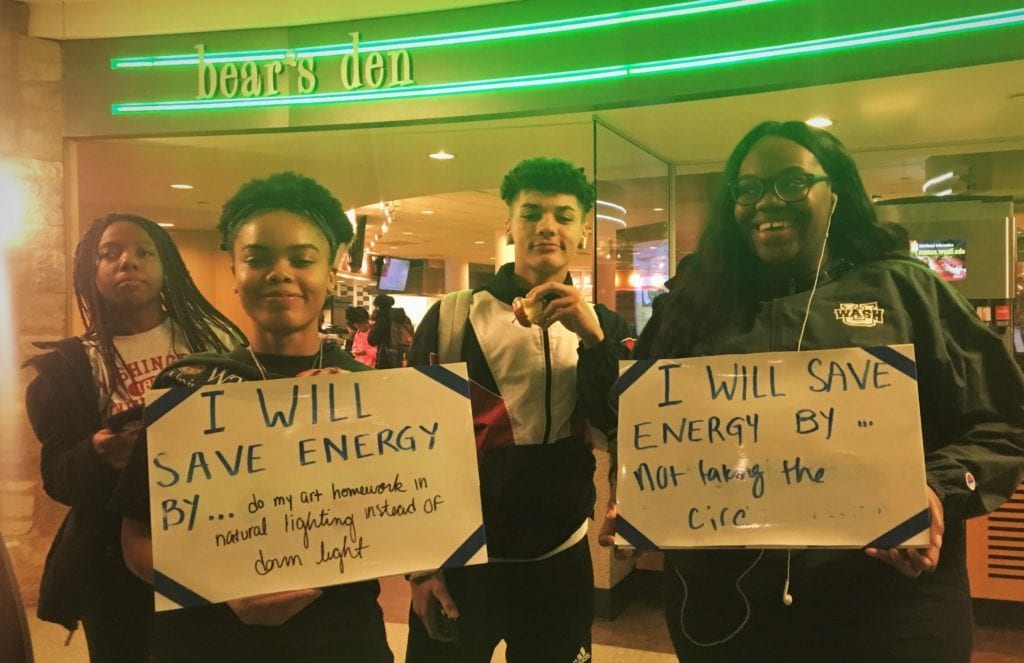March 5 marked the end of WashU’s 9th annual Green Cup, with LeeBeau residential college coming in first place, and Brookings and HIG Residential Colleges coming in second and third place, respectively. For almost five weeks, Green Cup challenged residents of the South 40 to reduce their energy use, while engaging in a broad range of activities such as taking the Sustainability Pledge, attending events, or responding to weekly green themed quizzes.
This year’s point system also added a new opportunity for teams to earn points. Together, residents were able to win up to 25 points for their respective ResCollege by participating in the Campus Eco Challenge, a sustainability engagement program for campus engagement. Participants track and share their progress online in a robust platform and earn points for taking action. Campus EcoChallenge provides tools and inspiration to turn intention into action, and gives participants a fun and social way to think about and act on proven solutions that make a difference.
“It’s difficult to control every single action of all the students in a dorm and specifically help them build their habits, but this tool it is a great way to help them build their own habits by themselves,” said first year student EcoRep for LeeBeau, Risako Nozaki.
Alexis Tinoco, Sustainability Chair for the Congress of the South 40, said that one of the biggest benefits of the EcoChallenge is that it emphasizes the power of collective action, which is at the heart of Green Cup. “When everyone works together, individuals feel like they are a part of something much bigger, and when they work together to reduce energy their impact can be really amplified,” said Tinoco.
“I think what propelled us into the lead was our community spirit” said LeeBeau’s EcoRep Risako, who even reported the existence of “in-the-dark shower parties”. The active LeeBeau group chat has also been a big help to create mutual encouragement and build momentum around energy saving habits.
Now that the Cup has finished, so too have its incentives for energy reduction. Alexis and Risako agree that holding peers accountable remains a priority. “Actions like turning off the light when leaving the room or using cold water to wash clothes are habits that can create significant impact even though they are small changes,” said Risako. “It is difficult to form any type of habit instantly, but I want students to recognize how easy and fun sustainable habits are.”
Alexis shared similar sentiments: “A great thing about Green Cup is that it really makes you aware of just how easy it is to make small changes to your lifestyle to save energy. I think it is something that sticks with people. So even though Green Cup is over, you should continue to live like every day is Green Cup and remind all your friends to do the same!”
This article was written by Selaam Dollisso, Communication Associate with the Office of Sustainability.
